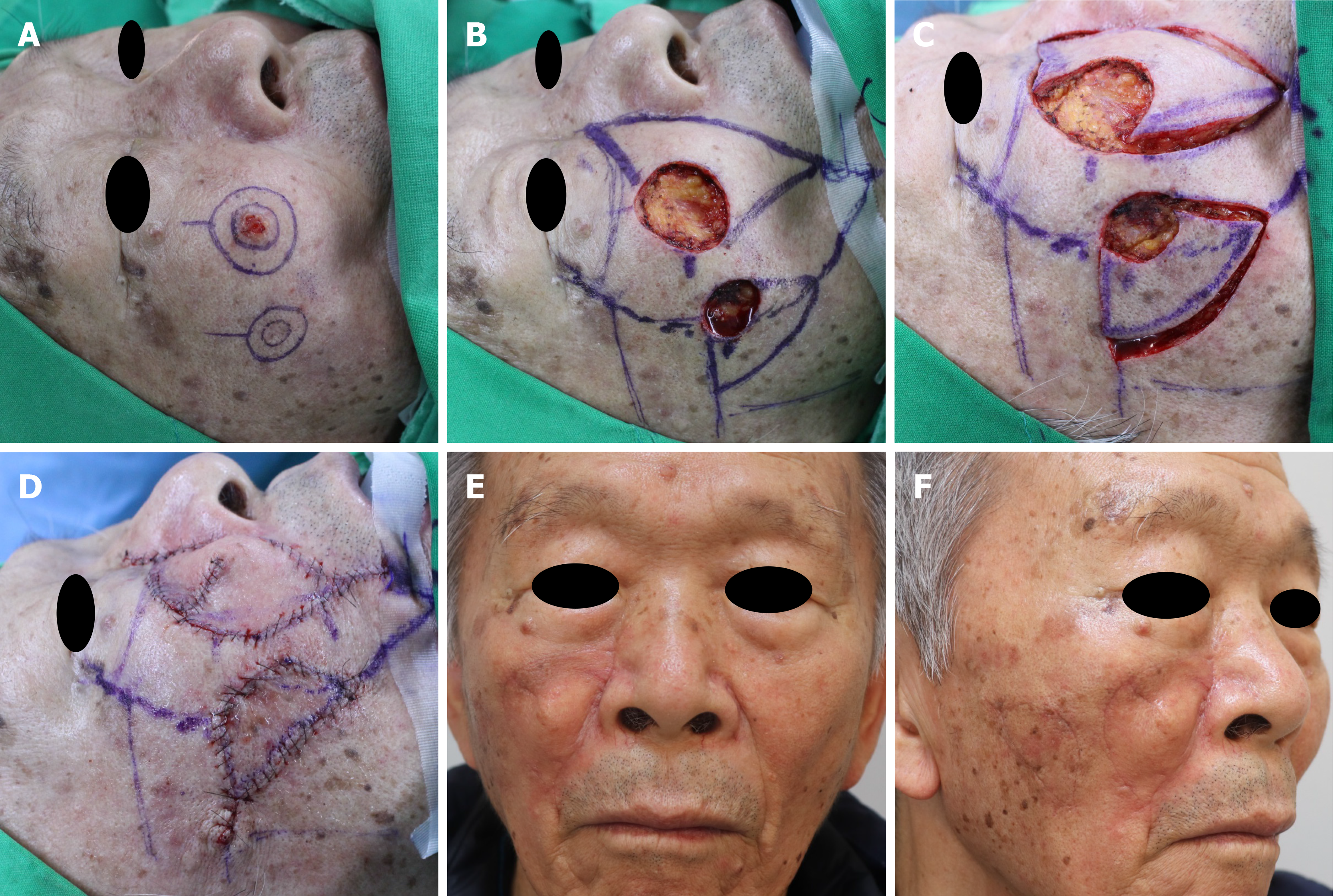Copyright
©The Author(s) 2020.
World J Clin Cases. May 26, 2020; 8(10): 1832-1847
Published online May 26, 2020. doi: 10.12998/wjcc.v8.i10.1832
Published online May 26, 2020. doi: 10.12998/wjcc.v8.i10.1832
Figure 10 A 77-year-old man was diagnosed with basal cell carcinoma on the right cheek after a punch biopsy.
A: There were two lesions in the medial subunit and the lateral subunit of the right cheek unit; B: He underwent wide excision of each lesion with a 5-mm safety margin, and each final defect was measured to be 2.6 cm × 2.6 cm in the medial subunit and 1.5 cm × 1.5 cm in the lateral subunit; C, D: We covered the medial subunit defect and the lateral subunit defect with a Ω-variant Type IIA keystone design perforator island flap (flap size: 3.5 cm × 7 cm) and a Type I keystone design perforator island flap (flap size: 2 cm × 4 cm) in consideration of facial relaxed-skin tension lines and the facial subunit concept, respectively. Final suture lines were located within and along each facial subunit; E, F: Postoperative clinical photographs after 3 mo.
- Citation: Lim SY, Yoon CS, Lee HG, Kim KN. Keystone design perforator island flap in facial defect reconstruction. World J Clin Cases 2020; 8(10): 1832-1847
- URL: https://www.wjgnet.com/2307-8960/full/v8/i10/1832.htm
- DOI: https://dx.doi.org/10.12998/wjcc.v8.i10.1832









